Did you know that Egypt's New Administrative Capital is poised to overtake New Cairo as the country’s prime real estate hotspot? Questions are swirling around these two burgeoning areas, and it’s time to uncover which one promises real estate gold!
With rapid urban expansion and sizeable investment flooding into Egypt, choosing the right location now could reshape your future wealth. This decision is no longer a simple preference; it’s an urgent call to action in a swiftly evolving market.
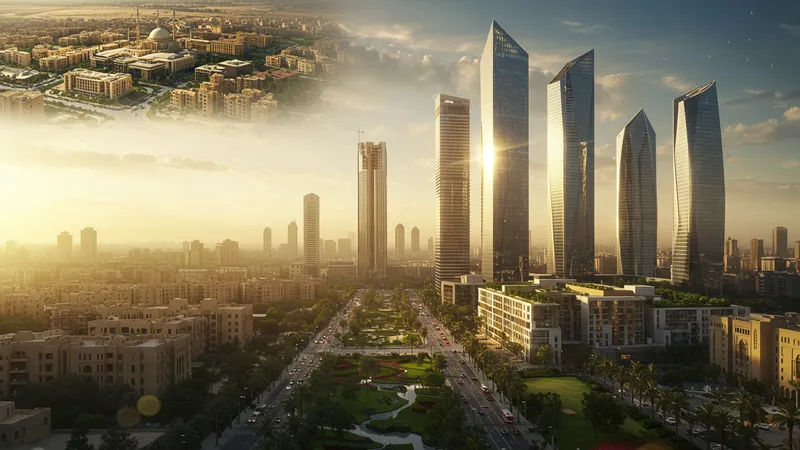
Most people have heard whispers about the vast urban developments sweeping through Egypt, yet few understand the full extent of this real estate revolution. The New Administrative Capital isn't just a flashy project—it's a cleverly orchestrated plan designed to alleviate Cairo's notorious congestion, promising unprecedented amenities and state-of-the-art infrastructure. But that’s not even the wildest part…
New Cairo, on the other hand, has been the crown of modern urban living for years. It’s established, prestigious, and loaded with luxurious residential compounds that have already garnered global attention. Investors have flocked here, blind to the brewing competition. Could New Cairo be outshone by its ambitious sibling? What happens next shocked even the experts…
The New Administrative Capital is not merely a place to live; it's an ideological shift. Designed to accommodate over six million residents, this city promises more than just housing; it's offering a revolutionary lifestyle. The inclusion of solar energy, smart grids, and sustainable designs sets it apart from traditional urban settings. This city is not only an answer to overcrowding but a vision for a sustainable future. But there's one more twist...
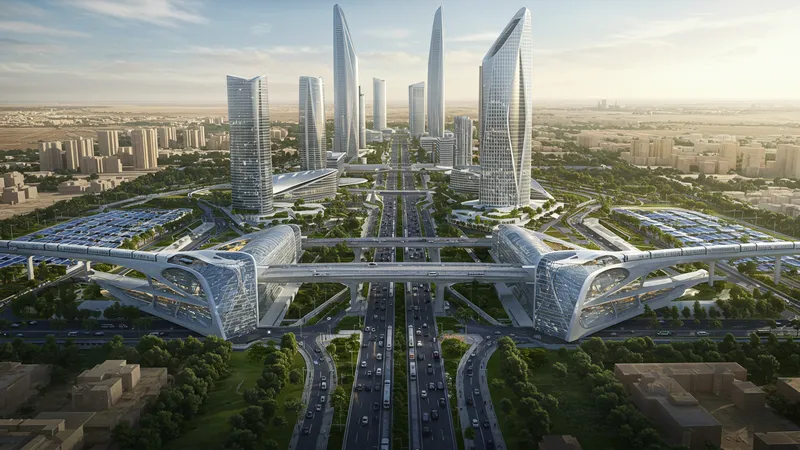
Infrastructure is at the heart of New Capital's framework, with the world's largest transportation network under construction to ensure seamless accessibility. This is not just about comfort—it's about efficiency that rivals global standards. The government has invested billions, making sure that this isn’t just another Cairo suburb, but a megacity on its own. However, these developments lead to a surprising catch...
Even with its glossy promises, challenges surface. Some analysts voice concerns over its ambitious timeline, questioning the realistic nature of its completion dates. Yet, interest never wanes, fueled by prospects of profitable returns. The stakes are high, and the cost-benefit analysis is more intricate than it seems. As these doubts pile up, one question still lingers...
The idea pushing this colossal project forward is meticulously calculated; it's also reflective of Egypt's rich cultural heritage. The city seamlessly blends modern skyscrapers with traditional Islamic architecture. This isn’t just an architectural feat; it's a journey through time and technology that demands attention. But what you read next might change how you see this forever.
New Cairo doesn't need an introduction to locals or foreigners who have called it home. Its meticulously curated community lifestyle has set a benchmark for modern living. With an array of top-tier international schools and medical centers, this city has always attracted a discerning clientele. However, everyone is asking if the same charm will sustain it when the New Capital rises. But here's a hidden story...
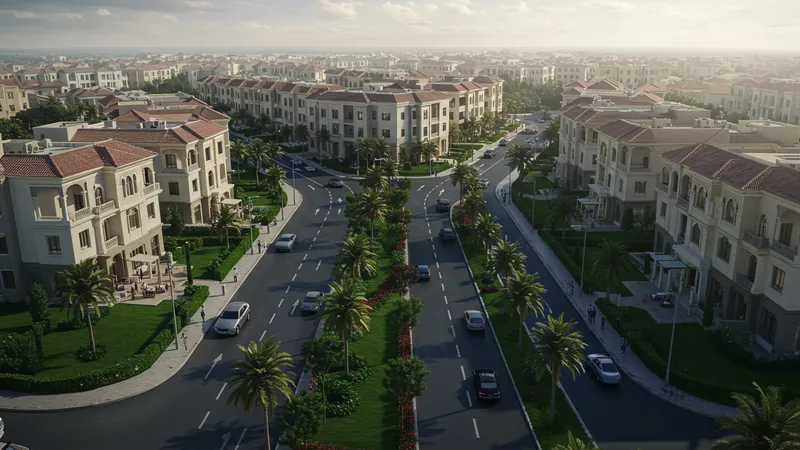
Its well-established infrastructure offers an urban living experience close to Cairo, minus the chaos of city life. Unlike the rapidly-developing New Capital, New Cairo has authenticity on its side. The completely developed environment here makes it attractive, yet this doesn't come without its own challenges. So why is everyone still divided?
One major factor that sets New Cairo apart is the thriving academic hub centered around the American University in Cairo. This educational magnet draws a diverse crowd, fostering a community rich in knowledge and culture. Can the New Capital match this academic appeal, or does it need to offer something entirely different to win hearts?
Investors are in a tug-of-war, seeing potential in both locations yet struggling with starkly different predictions. Some resemble New Cairo’s current state as a safe harbor, but others are enchanted by New Capital’s futuristic promises. So, which direction should you lean toward, and are there factors you never considered that could tip the scales?
While New Cairo offers posh, tranquil living, there's a paradox. As the city expands, traffic congestion is creeping in, transforming mornings into a commuter’s nightmare resembling its parent city. Could this be the Achilles' heel that produces alternative interest toward New Capital? The overlap has just begun...
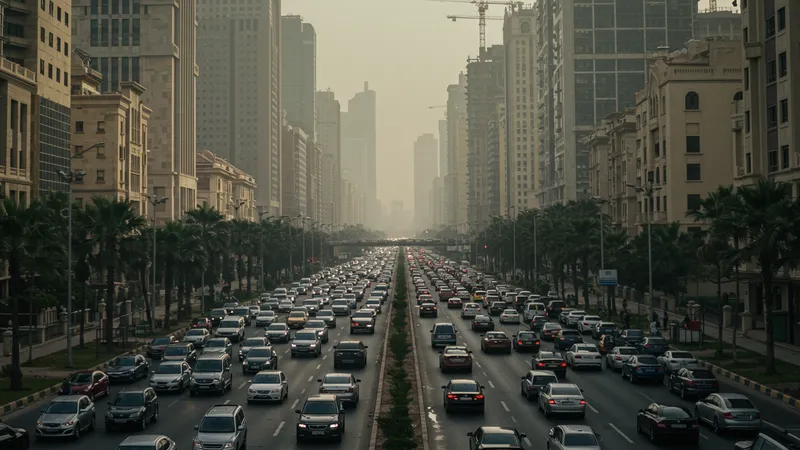
As New Cairo grapples with these issues, some claim the area is losing its exclusive charm. Once serene neighborhoods are now teeming with construction, changing investment perceptions. Yet, many still argue that the lifestyle here remains unparalleled, holding its ground against the rising tide. But is there a monkey wrench in their plans?
What often goes unspoken is New Cairo's real estate pricing. While high demand inflates property values, this bubble may not hold forever. This speculation is a double-edged sword: it can lead to profitable resale, but also high-risk investment if the market shifts unexpectedly. But this curious contradiction doesn’t end here...
This urban sprawl unveils an inevitable transformation pattern in young cities. First, it's peaceful—then it buzzes vibrant life, but succumbs to the struggle of balancing growth and sustainability. Is New Cairo approaching its saturation point? Or is this rumbling merely laying the foundation for a more stable future?
Real estate isn’t just about structures—it's a complex ecosystem driven by economic forces. Foreign investments are pouring into these Egyptian locales, altering perceptions. As New Capital opens its doors to international financial models, competition with New Cairo becomes a battleground of economic prowess. But the real game changer is unexpected...
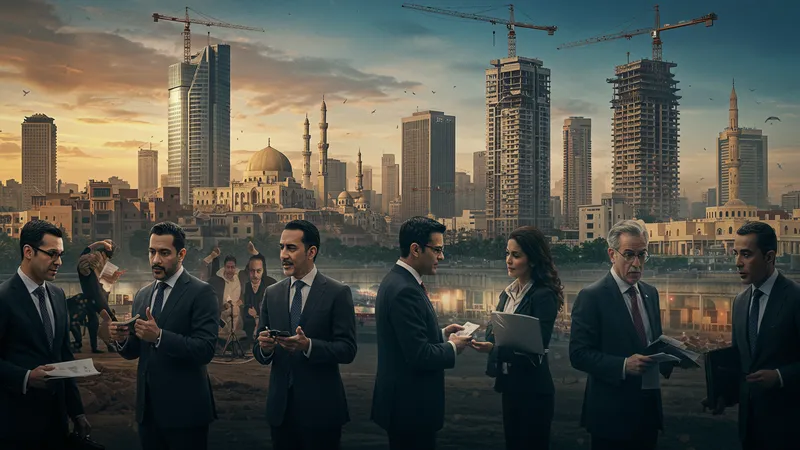
While Egyptian government policies have significantly contributed to these developments, international companies are also making their move. Their involvement boosts growth in both regions, yet also stirs underlying tensions. The political influence can shape or stall initiatives; anything can happen in this dynamic environment. What you read in the next line might surprise you...
A dazzling indicator of interest is the influx of expatriates. Their presence not only elevates property value but also integrates diverse cultural expectations and needs. Their investment choices can tilt the balance between New Cairo and New Capital more than speculators foresee. Yet, there’s a crucial detail investors often overlook...
With globalization weaving into local economies, property investors find themselves interacting with far more than mere physical assets. They tread upon interlocking networks of international agreements, arbitrary market fluctuations, and evolving property laws. These are the unsung factors morphing the face of Egyptian real estate today.
One cannot ignore the dazzling architectural achievements that both areas boast. From mega malls to spellbinding skyscrapers, the landscape is rapidly evolving. New Capital's architecture woos eyes globally with stunning, eco-friendly designs. However, is it authenticity or just strategic overpromotion? The answer might not be what it seems...
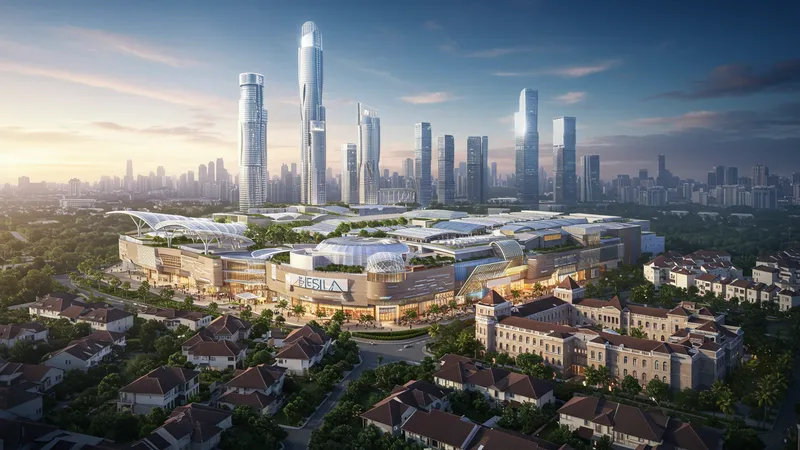
New Cairo relies on its classic colonial flair combined with modern residential compounds that draw top-end buyers. But is this combination sufficient to maintain its status as an iconic area? Balancing modernity with timeless elegance is a delicate act and could sway investment decisions drastically. Yet, a stark realization awaits...
Underneath the glamour lie potential pitfalls. As designs push engineering limits, construction quality oversight remains critical. Oversight errors can diminish property values and investor confidence. Ironically, what appears as an appeasing exterior might silently undermine its solid foundation. A surprising revelation lies just ahead...
This architectural battle isn’t just about aesthetics—it's a deeper dive into identity. It's about choosing between meticulous blends of heritage in New Cairo and cutting-edge leaps of futuristic design in New Capital. Amidst this rivalry, one city might secretly corral more spectators in its arena...
The debate on living costs between the two cities isn’t just speculation—it's shaping the future of real estate investment. Monthly expenses, from utilities to transportation, dictate more than personal comfort; they directly influence property appeal. However, the price tags carry a hidden implication...
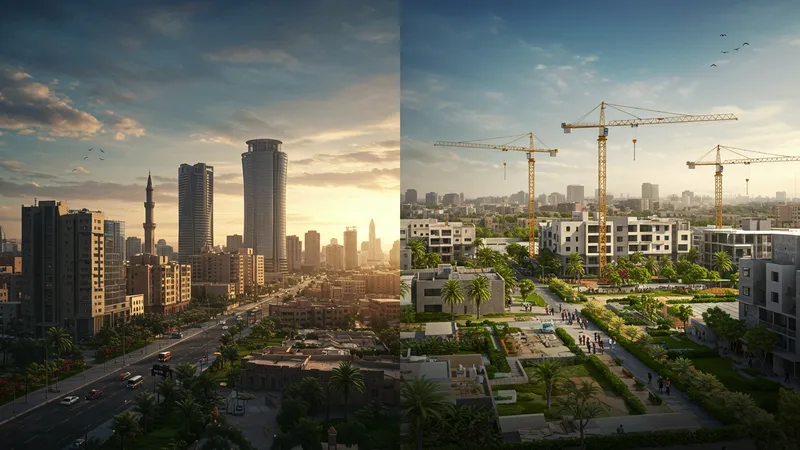
While New Cairo sportingly presents a stable living cost due to its mature market, New Capital promises affordability with burgeoning facilities. The calculus behind these costs sways potential homeowners; choosing based on price could alter lifestyle quality more than many anticipate. But before you jump to conclusions, remember...
Investment isn’t limited to sums dedicated to purchase. Consideration must be given to future valuations, returns, and perhaps the chance of depreciation. Property management strategies are integral, too, as optimal utilization can amplify or diminish property value. Recognizing these financial nuances is pivotal...
The dual-sided economy poses a critical challenge: balancing up-front costs with long-term gains. Can New Capital continue offering more for less, or will burgeoning demand elevate prices beyond forecasts? The financial tightrope walks investors daily, eagerly waiting the city that strikes a lasting equilibrium.
The promise of community plays a significant role in swaying buyers and investors alike. New Cairo’s allure comes from its established community framework, fostering close-knit neighborhoods with long-standing traditions. But is sticking to tradition a strength or a weakness in today’s fast-paced world?
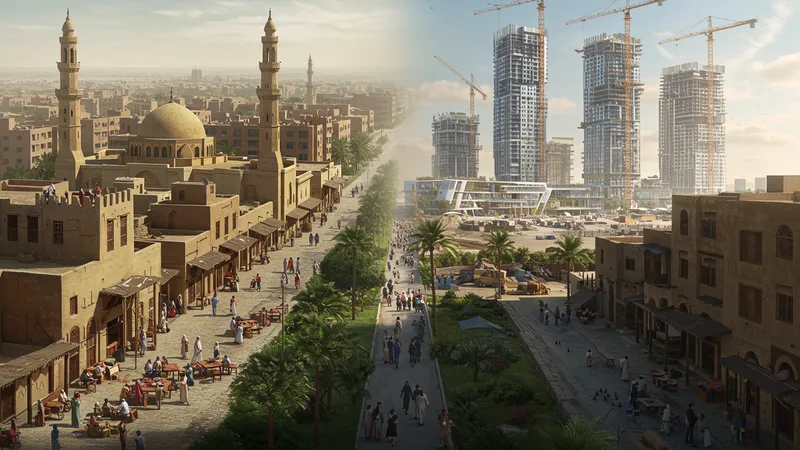
New Capital is an ongoing experiment in community building, aiming to connect individuals in entirely new social settings. The challenge here is crafting harmonious communities in a blank canvas world. But does a novel approach necessarily translate to sustainable social dynamics?
In both cities, social fabric is stitched tightly with cultural and recreational amenities. Yet as these offerings widen, competition intensifies. Be it exclusive golf courses or serene parks, they each strive to showcase their unique appeal. This rivalry leads to significant lifestyle implications...
The divergent community models reflect not just residents' lifestyles but foreshadow each city’s trajectory. Does an embedded tradition solidify New Cairo’s status, or will innovative communal living in New Capital redefine urban norms? The outcome holds the key to potential lifestyle transformations.
In an era of globalization, learning from international urban masterpieces offers hidden strategies for Egyptian real estate. Cities like Dubai and Singapore have exploded with their strategic planning and futuristic visions. How can New Cairo and New Capital emulate this to ensnare worldwide investors’ attention?
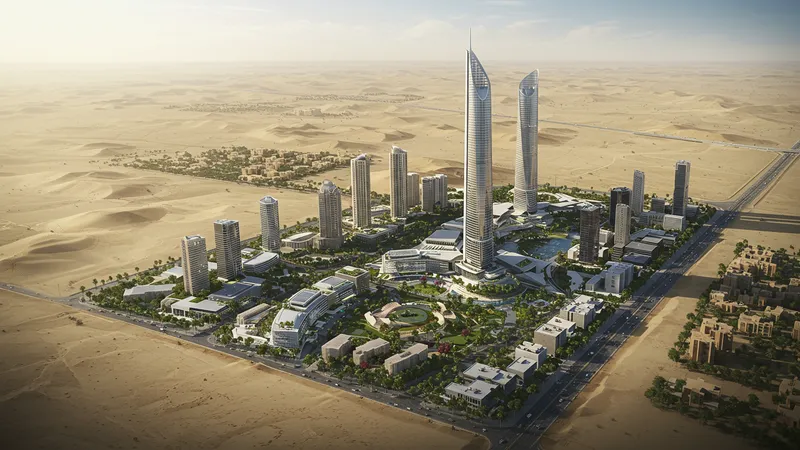
Economic zones and metropolitan projects launch these cities to capitalize on location-specific benefits, mirroring key elements of their global predecessors’ successes. Crafting experiences that connect the city’s pulse with global visitors is monumental. But there’s a caveat you need to hear...
While international investments pour in, flexibility becomes crucial to adopt unique challenges. Smart city components are not solely about the flash; adaptation to the populous need is equally critical to sustainability. Does either city truly optimize these models? Or do they face initial setbacks?
Rapid urbanization comes with transformative lessons, where potential rewards must be weighed against risks confidently. Succeeding in the growing real estate market might depend on pinpointing the best practices from global phenomenons. The real question is: Who will decode these lessons first?
Egypt's rich historical narrative shapes more than just its present identity—it profoundly impacts its real estate norms. New Cairo capitalizes on proximity to ancient wonders, adding a timeless value. Does this provide a leverage New Capital lacks, or is there a historical wildcard that's less evident?
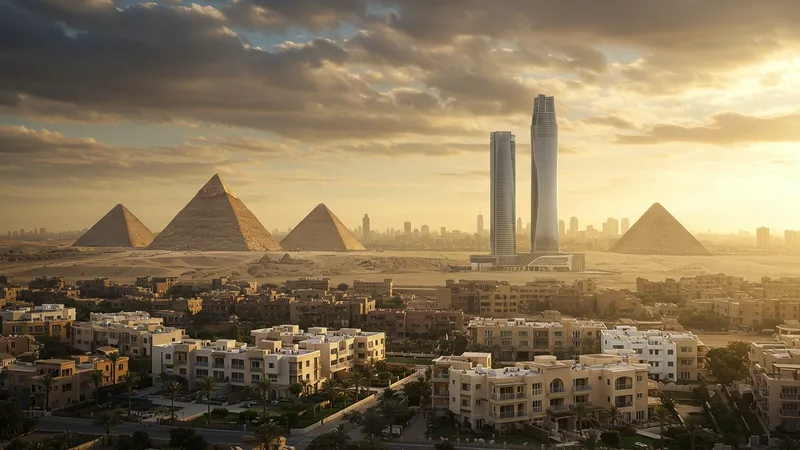
Cultural allure indeed plays into property value, enticing those drawn to heritage. However, New Capital aims to write its history, crafting modern icons that resonate just as strongly with future generations. Are these bids to history as effective as they seem, or a diversion from a simpler truth?
The reliance on historical prestige as a property enhancer raises debate: does reflecting on the past create predictable investment trends, or is it a novel strategy for differentiation in a bustling market? The value of nostalgia meets the desire for sleek modernity right here...
This historical identity clash is more than an aesthetic choice—it's a serious contemplation influencing investor decisions. Leveraging past narratives and envisioning futuristic tales are both art forms of urban design with far-reaching consequences. The world watches to see how Egypt weaves past into its present.
Along with the booming investment potential come surges in responsibilities to ensure everything stays on track. Sustainability, zoning regulations, and socially responsible development weigh on developers’ minds. Can either city boast a sustainable module that rises above concerns?
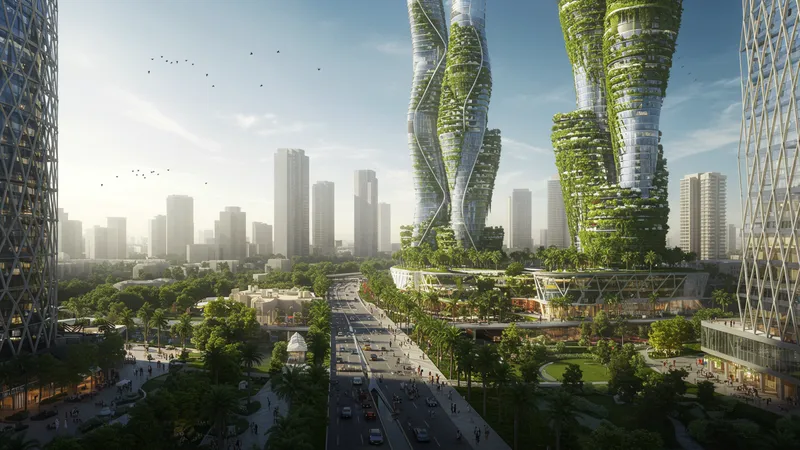
Rapid growth demands infrastructure that can handle demands without degrading social and environmental values. Both New Cairo and New Capital propose green urbanism—yet the execution can bring unforeseen results that aren't universally admired. Are they prepared for the consequences?
Developers operate within a thin margin between nurturing urban flourishing and overdeveloping. The role of diligent urban planning becomes vital, exposing cracks that could undermine credibility. Professionals versed in eco-friendly innovations offer revolutionary ideas where they are most needed. But does either city truly harness this potential?
As Egypt’s habitat evolves, the ripple effects of responsible real estate resonate throughout communities and beyond. Stumbling upon impactful resolutions can make or break urban dreams. What ensues amidst the bustling development could surprise even cynics as results unfold...
Real estate transactions aren’t governed solely by professionals—consumer preference assumes an instrumental role. The power’s shift to the consumer affects urban planning, encouraging transparency and amenity-driven growth. Which city adapts to this evolution and emerges as a market leader?
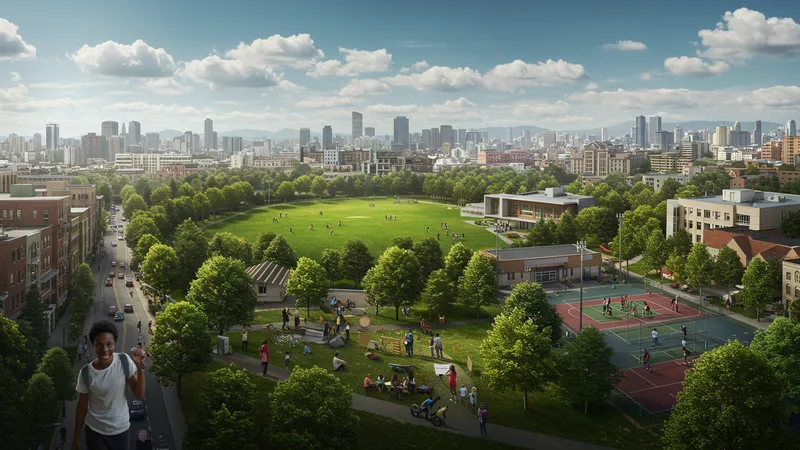
Due to amplified awareness, residents’ activism gathers momentum. As they advocate for green spaces, schools, and culture, cities tune in to novel demands. Quick to shift paradigms won't just sustain consumer attraction but propel future growth. A transformative revolt sneaks in unexpectedly...
While competing to satisfy residents, failures in one sector can trigger mass relocation, steering investment decisions. Understanding these undercurrents uncovers crucial insights for potential settlers. Is either city more resilient to shifting sentiment than we presume?
Conversations spotlight the human factor, demanding heartfelt cityscapes melded with the luxury of choice. As properties evolve from living quarters to lifestyle canvases, closeness to human necessities dictates desirability. This is the unspoken narrative and the paradigm that future property stewards should observe intensely...
The perception surrounding both New Cairo and the New Capital plays a pivotal role in their appeal. News stories, marketing campaigns, and social chatter paint narratives that influence belief systems. But perception isn't reality—a difference sometimes shockingly realized.
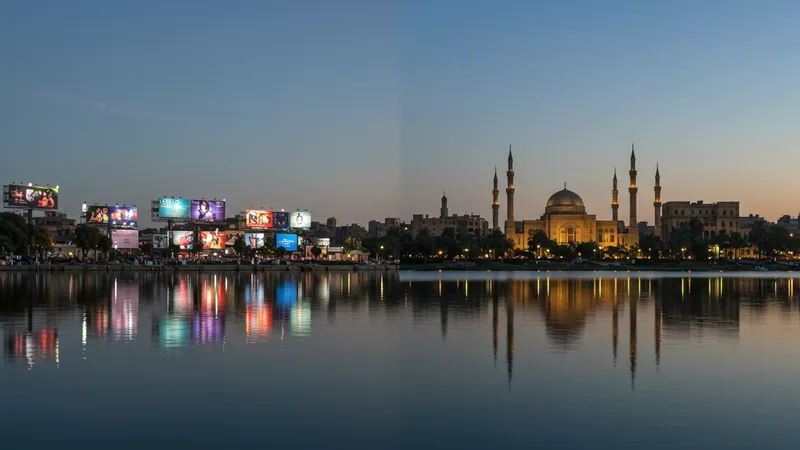
Media representation and public conversations spark curiosity. Are they nuanced historic accounts or optimistic renderings? Understanding media influence allows potential investors to see which city truly hits the right chords across the broad societal spectrum. But there's more than meets the eye...
If accurately translated, popularity stems from social approval driven by resident satisfaction, disheartened ex-patriates, and visionary developers alike. Local tales of triumph or stagnation fuel the symbolic life force. Which city orchestrates this subtle power-play to its advantage?
Amidst the well-curated perceptions emerges authenticity. Scrutinizing these perceptions can expose or eliminate myths rooted in previous regimes. Harnessing genuine viewpoints holds the key to holistic property growth, where optimism aligns with investment in splendid unison.
Strategically speaking, future readings of both cities reveal unparalleled paths to excelling property investments. Can either city catapult itself ahead by anticipating future societal trends? The crystal ball gazing uncovers potential surprises!
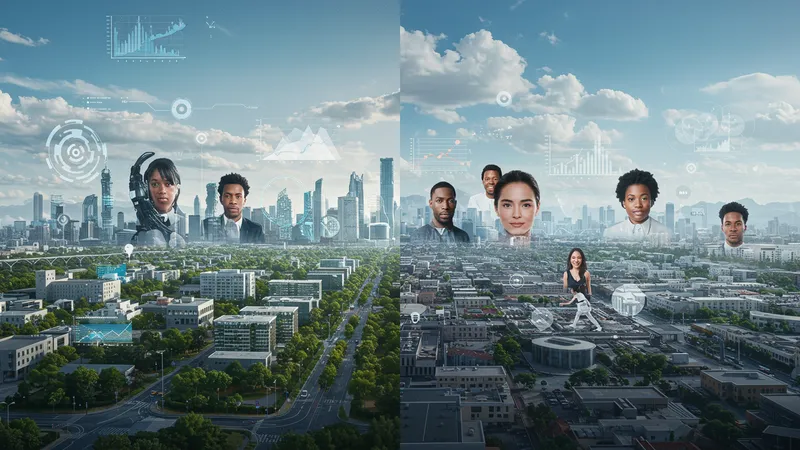
Forecasting includes demographics, urban sprawl forecasts, and economic trends. New Capital bet heavily on smart solutions, positioning itself as a forerunner in adaptive approaches. Yet, this prediction is tethered to reliably curated data—can assumptions lead astray?
The largely unpredictable aspect, economic variances, directly affect property value. When investing, mindfulness aids staying ahead of disruptive patterns. Scientific anticipation guides complex decisions that acquaint buyers with the best possible approaches. But what's bound to occur as forecasts become reality?
For those adept at reading between the lines, the ability to discern consequential elements is immeasurable. The merger of predictions and tangible developments nurtures a balance between aspirations and achievable futures. Ultimately, owning such astuteness lies with New Cairo or New Capital. Their paths will unfold soon...
As the dust settles and construction cranes target the sky, both New Capital and New Cairo stand at a crossroads between ambition and tradition. Each city's strengths and hesitations yield lessons far reaching—offering both grandeur and caveat in equal measure. Time will reveal which one etches their destiny into the annals of real estate supremacy.
Start the conversation by sharing your insights, bookmarking these highlights, and taking steps toward your own real estate journey. The future isn’t merely something you await; it’s something you develop. Choose wisely, but never look back—only forward.